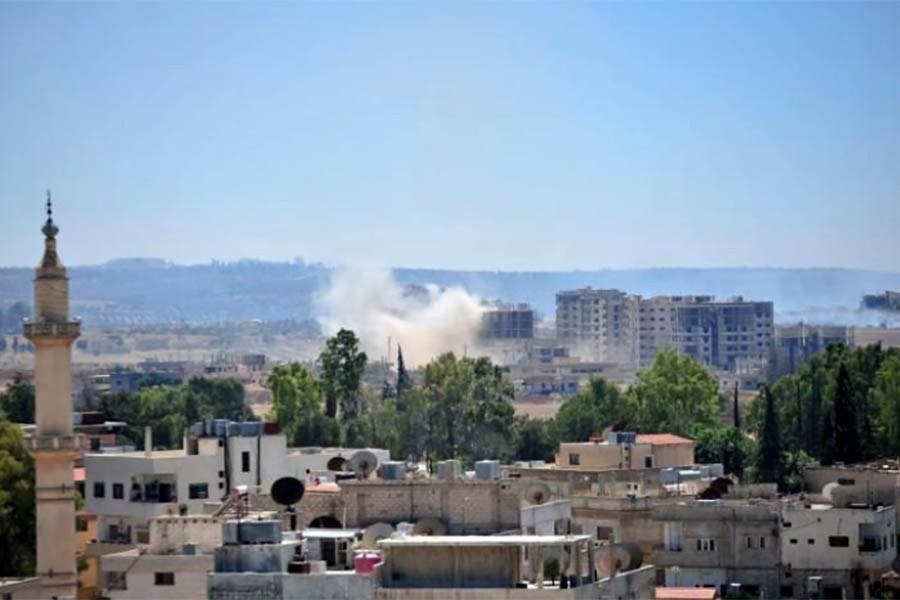The Syrian army seized more towns in the southwest on Saturday, as air strikes pounded others that still held out against the rapid offensive.
On the other hand, the rebels said they had begun negotiating peace terms through the government’s ally Russia.
State television broadcast from the town of Dael, northwest of Deraa city, after the army entered, and a war monitor reported that several towns further east had also accepted government rule, reports Reuters.
Rebels expected to hold another meeting on Saturday with Russian officers to negotiate a deal for the return of Syrian state sovereignty over the whole of Deraa province, an insurgent spokesman said.
Air raids continued in the meantime, said the Syrian Observatory for Human Rights, in an offensive that the United Nations says has driven 160,000 people from their homes, threatening a humanitarian catastrophe.
Russia, the Syrian government’s strongest supporter, has backed army advances with air strikes since entering the war in 2015 and has played a role in mediating surrender deals.
Southwestern Syria is one of two remaining rebel strongholds, along with a region of the northwest that Syrian President Bashar al-Assad has sworn to recapture. He also wants to take back control of territory in northeastern Syria held by U.S.-backed Kurdish forces.
The army’s offensive follows the capitulation of rebel enclaves near Homs and Damascus, including eastern Ghouta, which was recaptured after a scorched-earth assault that killed over a thousand civilians and laid waste to several towns.
Warfare in the southwest could risk a further escalation because of its proximity to Israel. The Israelis have already targeted Iran-backed militia fighting on Assad’s side, which they have vowed to keep far from their country’s borders.
The government’s offensive so far has focused on Deraa province, which borders Jordan, but not Quneitra province abutting the Israeli-occupied Golan Heights. The deal being discussed does not include Quneitra, the rebels said.
The entire southwest is part of a “de-escalation zone” agreed last year by Russia, the United States and Jordan. Despite Washington’s threats that it would respond to breaches of that arrangement, it has shown no sign of doing so, and the opposition’s top negotiator on Thursday accused it of having struck a “malicious deal” to stay silent.


